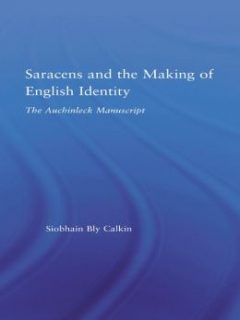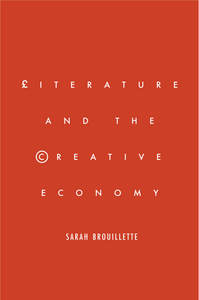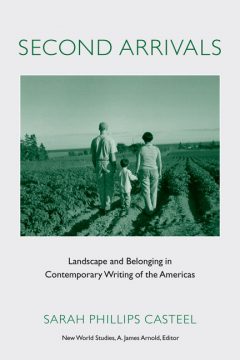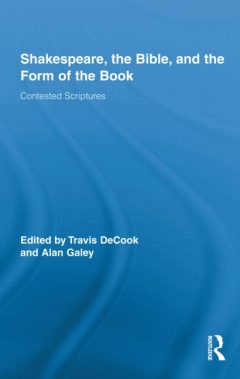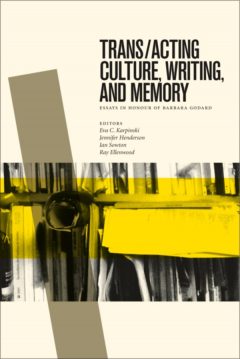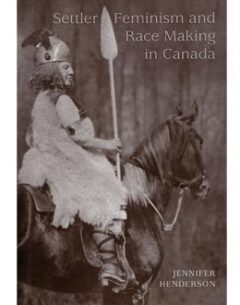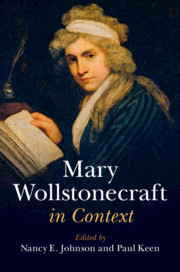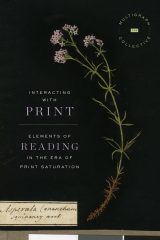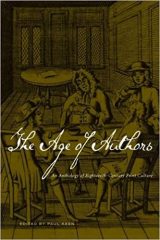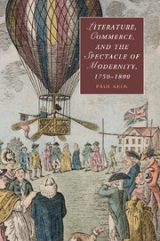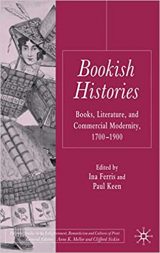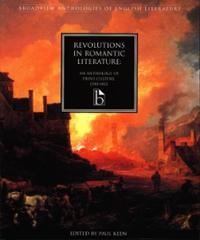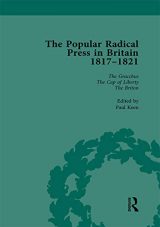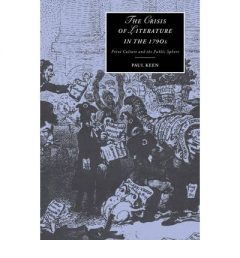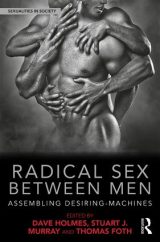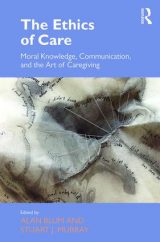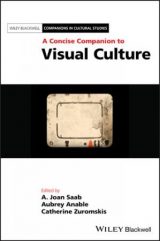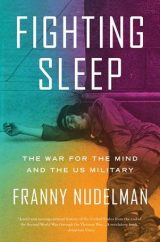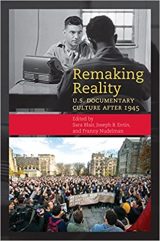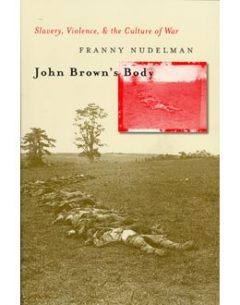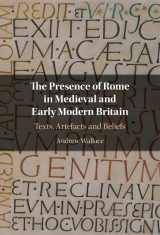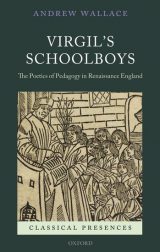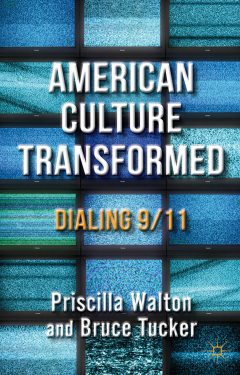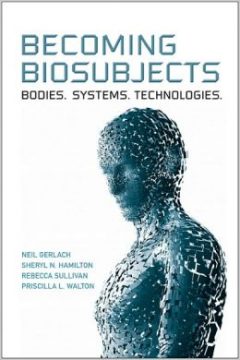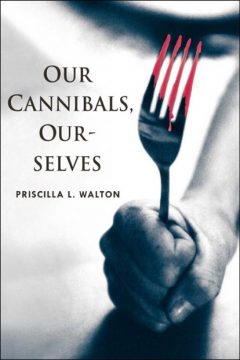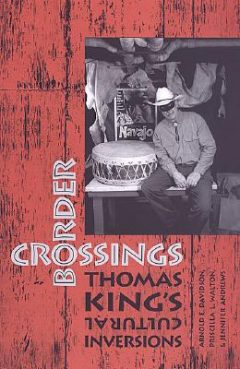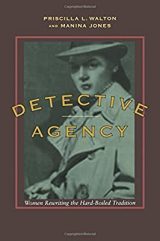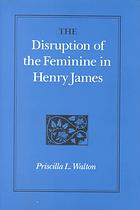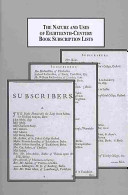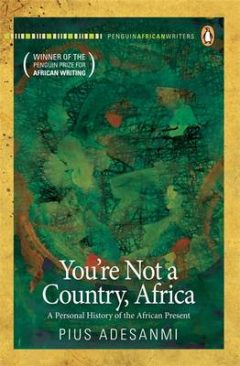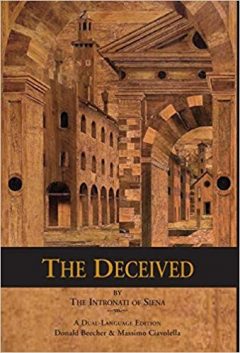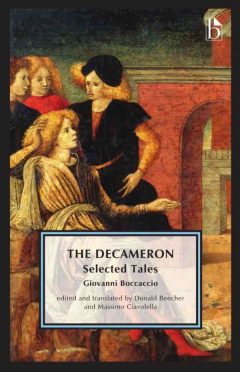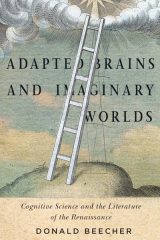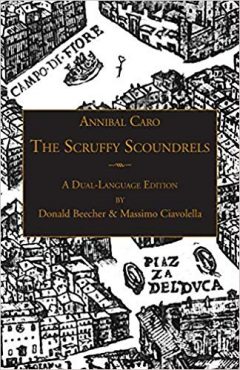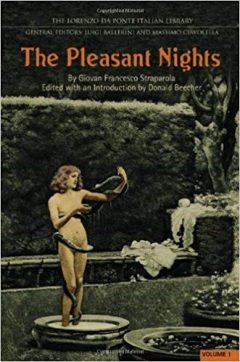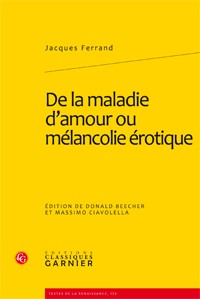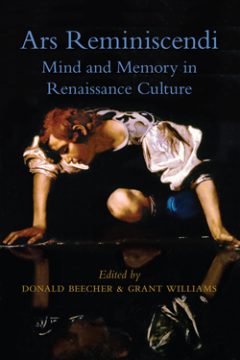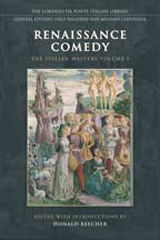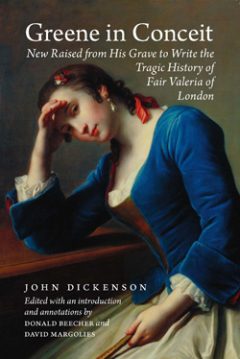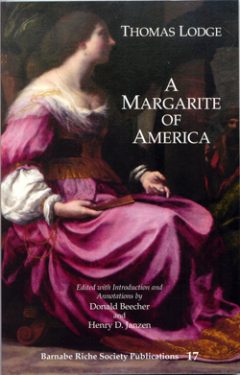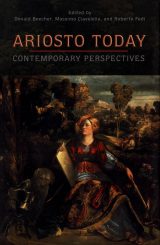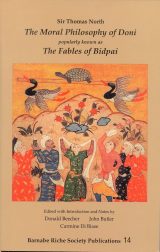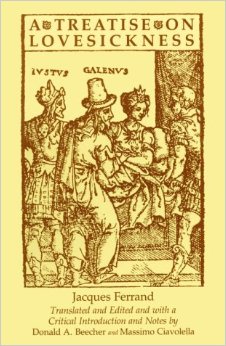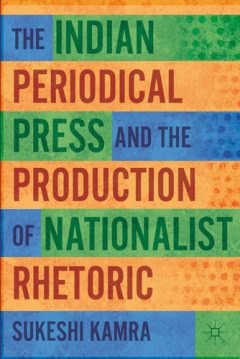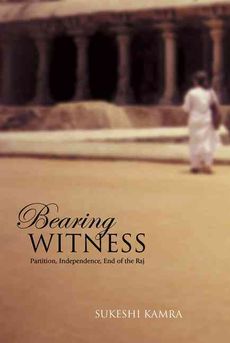New and Forthcoming Publications
Black Lives Under Nazism: Making History Visible in Literature and Art
Columbia UP, 2024.
Sarah Casteel
In a little-known chapter of World War II, Black people living in Nazi Germany and occupied Europe were subjected to ostracization, forced sterilization, and incarceration in internment and concentration camps. In the absence of public commemoration, African diaspora writers and artists have preserved the stories of these forgotten victims of the Third Reich. Their works illuminate the relationship between creative expression and wartime survival and the role of art in the formation of collective memory.
This groundbreaking book explores a range of largely overlooked literary and artistic works that challenge the invisibility of Black wartime history. Emphasizing Black agency, Sarah Phillips Casteel examines both testimonial art by victims of the Nazi regime and creative works that imaginatively reconstruct the wartime period. Among these are the internment art of Caribbean painter Josef Nassy, the survivor memoir of Black German journalist Hans J. Massaquoi, the jazz fiction of African American novelist John A. Williams and Black Canadian novelist Esi Edugyan, and the photomontages of Scottish Ghanaian visual artist Maud Sulter. Bridging Black and Jewish studies, this book identifies the significance of African diaspora experiences and artistic expression for Holocaust history, memory, and representation.
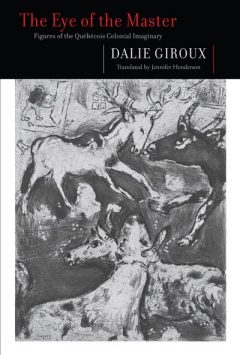 The Eye of the Master: Figures of the Québécois Colonial Imaginary
The Eye of the Master: Figures of the Québécois Colonial Imaginary
McGill-Queen’s UP, 2023
Dalie Giroux
Jennifer Henderson (trans.)
In the Québécois political vision of the twentieth century, sovereignty became synonymous with mastery. French Canadians sometimes claimed solidarity with racialized and Indigenous peoples, yet they saw their liberation as a matter of taking their rightful place in the seat of the oppressors. The idea of mastery has prevented the Québécois from seeing that their liberation is bound up with that of other groups oppressed by colonial powers.
The Eye of the Master confronts the missed opportunities for a decolonial version of indépendance in Quebec by examining the quest for mastery that has been at the root of every version of independence offered to the people of Quebec since the mid-twentieth century. Exploring political discourse, popular culture, and the family photo album, Dalie Giroux revisits the mythology of being “masters in our own house” and identifies the obstacles blocking a more comprehensive version of liberation based on solidarity. Drawing from the living forces of Indigenous thought and anti-racist, ecological, and feminist movements, Giroux envisions life without conquest, domination, exploitation, and surveillance. Making the case for a different future, beginning in the here and now, The Eye of the Master offers a major new intervention in contemporary political thought to Canadian readers and all those who imagine a different North America.
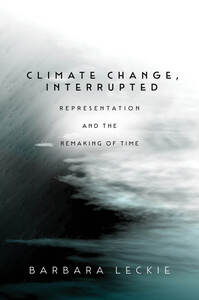
Climate Change, Interrupted
Representation and the Remaking of Time
Stanford University Press, 2022
Barbara Leckie
In this moment of climate precarity, Victorian studies scholar Barbara Leckie considers the climate crisis as a problem of time. Spanning the long nineteenth century through our current moment, her interdisciplinary treatment of climate change at once rethinks time and illustrates that the time for climate action is now. Climate Change, Interrupted argues that linear, progress-inflected temporalities are not adequate to a crisis that defies their terms. Instead, this book advances a theory and practice of interruption to rethink prevailing temporal frameworks. At the same time, it models the anachronistic, time-blending, and time-layering temporality it advances. In a series of experimental chapters informed by the unlikely trio of Walter Benjamin, Donna Haraway, and Virginia Woolf, Leckie reinflects and cowrites the traditions and knowledges of the long nineteenth century and the current period in the spirit of climate action collaboration. The current moment demands as many approaches as possible, invites us to take risks, and asks scholars and activists adept at storytelling to participate in the conversation. Climate Change, Interrupted, accordingly, invests in interruption to tell a different story of the climate crisis.
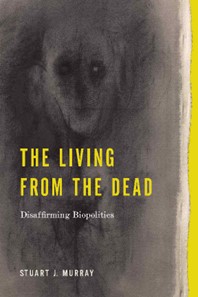 The Living and the Dead: Disaffirming Biopolitics
The Living and the Dead: Disaffirming Biopolitics
Penn State UP, 2022
Stuart Murray
Arguing that biopower can be fully exposed only through an analysis of those whom society has “let die,” Stuart J. Murray employs a series of transdisciplinary case studies to uncover the structural and rhetorical conditions through which biopower works. These case studies include the concept of “sacrifice” in the “war” against COVID-19, where emergent cultures of pandemic “resistance” are explored alongside suicide bombings and military suicides; the California mass hunger strikes of 2013; legal cases involving “preventable” and “untimely” childhood deaths, exposing the irreconcilable claims of anti-vaxxers and Indigenous peoples; and the videorecording of the death of a disabled Black man. Murray demonstrates that active resistance to biopower inevitably reproduces tropes of “making live” and “letting die.” His counter to this fact is a critical stance of disaffirmation, one in which death disrupts the politics politics of life itself.
The Bookshelf
Current Faculty
- Adam Barrows
-
To learn more about Adam Barrow‘s research and publications, please click here.
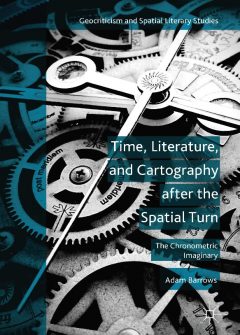
Time, Literature, and Cartography after the Spatial Turn
Palgrave, 2016
Time, Literature, and Cartography after the Spatial Turn argues that the spatial turn in literary studies has the unexplored potential to reinvigorate the ways in which we understand time in literature. Drawing on new readings of time in a range of literary narratives, including Vladimir Nabokov’s Ada and James Joyce’s Finnegans Wake, Adam Barrows explores literature’s ability to cartographically represent the dense and tangled rhythmic processes that constitute lived spaces. Applying the insights of ecological resilience studies, as well as Henri Lefebvre’s late work on rhythm to literary representations of time, this book offers a sustained examination of literature’s “chronometric imaginary”: its capacity to map the temporal relationships between the human and the non-human, the local and the global.
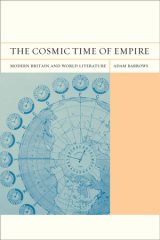
The Cosmic Time of Empire: Modern Britain and World Literature
University of California Press, 2010
Combining original historical research with literary analysis, Adam Barrows takes a provocative look at the creation of world standard time in 1884 and rethinks the significance of this remarkable moment in modernism for both the processes of imperialism and for modern literature. As representatives from twenty-four nations argued over adopting the Prime Meridian, and thereby measuring time in relation to Greenwich, England, writers began experimenting with new ways of representing human temporality. Barrows finds this experimentation in works as varied as Victorian adventure novels, high modernist texts, and South Asian novels—including the work of James Joyce, Virginia Woolf, H. Rider Haggard, Bram Stoker, Rudyard Kipling, and Joseph Conrad. Demonstrating the investment of modernist writing in the problems of geopolitics and in the public discourse of time, Barrows argues that it is possible, and productive, to rethink the politics of modernism through the politics of time.
- Susan Birkwood
-
To learn more about Susan Birkwood‘s research and publications, please click here.
A Year In Canada
Canadian Poetry, 2004
Mrs. Fleming (Ann Cuthbert)
Susan Birkwood (ed.)
A Year in Canada is one of the earliest published English-language texts by women concerning this country. Written by Ann Cuthbert Knight, this collection of poems was published in Scotland and is made available for the first time in a new edition.
- Siobhain Bly Calkin
-
To learn more about Siobhain Calkin‘s research and publications, please click here.
Saracens and the Making of English Identity: The Auchinleck Manuscript
Routledge, 2005
This book explores the ways in which discourses of religious, racial, and national identity blur and engage each other in the medieval West. Specifically, the book studies depictions of Muslims in England during the 1330s and argues that these depictions, although historically inaccurate, served to enhance and advance assertions of English national identity at this time. The book examines Saracen characters in a manuscript renowned for the variety of its texts, and discusses hagiographic legends, elaborations of chronicle entries, and popular romances about Charlemagne, Arthur, and various English knights. In these texts, Saracens engage issues such as the demarcation of communal borders, the place of gender norms and religion in communities’ self-definitions, and the roles of violence and history in assertions of group identity. Texts involving Saracens thus serve both to assert an English identity, and to explore the challenges involved in making such an assertion in the early fourteenth century when the English language was regaining its cultural prestige, when the English people were increasingly at odds with their French cousins, and when English, Welsh, and Scottish sovereignty were pressing matters.
- Sarah Brouillette
-
To learn more about Sarah Brouillette‘s research and publications, please click here.
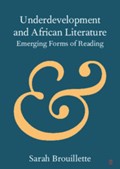
Underdevelopment and African Literature
Cambridge UP, 2020
People looking for works in cities are immersed in English as the lingua franca of the mobile phone and the urban hustle – more effective instigations to reading than decades of work by traditional publishers and development agencies. The legal publishing industry campaigns to convince people to scorn pirates and plagiarists as a criminal underclass, and to instead purchase copyrighted, barcoded works that have the look of legitimacy about them. They work with development industry officials to ‘foster literacy’ – meaning to grow the legal book trade as a contributor to national economic health, and police what and how the newly literate read. But harried cash-strapped audiences will read what and how they can, often outside of formal economies, and are increasingly turning to mobile phone platforms that sell texts at a fraction of the price of legally printed books.
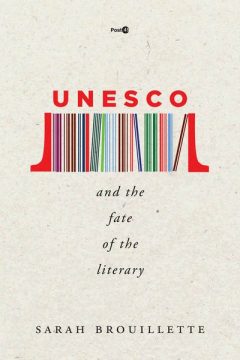
UNESCO and the Fate of the Literary
Stanford University Press, 2019
A case study of one of the most important global institutions of cultural policy formation, UNESCO and the Fate of the Literary demonstrates the relationship between such policy-making and transformations in the economy. Focusing on UNESCO’s use of books, Sarah Brouillette identifies three phases in the agency’s history and explores the literary and cultural programming of each. In the immediate postwar period, healthy economies made possible the funding of an infrastructure in support of a liberal cosmopolitanism and the spread of capitalist democracy. In the decolonizing 1960s and ’70s, illiteracy and lack of access to literature were lamented as a “book hunger” in the developing world, and reading was touted as a universal humanizing value to argue for a more balanced communications industry and copyright regime. Most recently, literature has become instrumental in city and nation branding that drive tourism and the heritage industry. Today, the agency largely treats high literature as a commercially self-sustaining product for wealthy aging publics, and fundamental policy reform to address the uneven relations that characterize global intellectual property creation is off the table. UNESCO’s literary programming is in this way highly suggestive. A trajectory that might appear to be one of triumphant success—literary tourism and festival programming can be quite lucrative for some people—is also, under a different light, a story of decline.
Literature and the Creative Economy
Stanford University Press, 2014
For nearly twenty years, social scientists and policy makers have been highly interested in the idea of the creative economy. This book contends that mainstream considerations of the economic and social force of culture, including theories of the creative class and of cognitive and immaterial labor, are indebted to historic conceptions of the art of literary authorship. What’s more, it shows how contemporary literature has been involved in and has responded to creative-economy phenomena, including the presentation of artists as models of contentedly flexible and self-managed work, the treatment of training in and exposure to art as a pathway to social inclusion, the use of culture and cultural institutions to increase property values, and support for cultural diversity as a means of growing cultural markets.
Contemporary writers have not straightforwardly bemoaned these phenomena in a classic rejection of the instrumental application of art. Rather, they have tended to explore how their own critical capacities have become compatible with or even essential to a neoliberal economy that has embraced art’s autonomous gestures as proof that authentic self-articulation and social engagement can and should occur within capitalism. Taking a sociological approach to literary criticism, Brouillette interprets major works of contemporary fiction by Monica Ali, Aravind Adiga, Daljit Nagra, and Ian McEwan alongside government policy, social science, and theoretical explorations of creative work and immaterial labor.
Postcolonial Writers in the Global Literary Marketplace
Palgrave Macmillan, 2007; paperback edition 2011
Postcolonial Writers in the Global Literary Marketplace, now in paperback and with a new Preface, considers some of the market conditions that have framed the emergence of English-language postcolonial literatures, and suggests modifications to existing accounts of how a writer’s marginality is experienced by consumers of postcolonial texts. Arguing that the incorporation of writers who are marketed as postcolonial has been crucial to global expansion and consolidation in the publishing industry, Sarah Brouillette connects market incorporation to the self-consciousness of a set of postcolonial writers. She situates their attempts at self-definition, self-critique, and self-defence within the general history of literary authorship, and argues for new ways of understanding authorship in light of the experiences of figures like Derek Walcott and Salman Rushdie. Combining explorations of existing theory with wide-scale market analysis and close attention to writers’ careers and texts, the study makes an exciting contribution to globalization studies and to the emerging history of the postcolonial book.
- Sarah Phillips Casteel
-
To learn more about Sarah Casteel‘s research and publications, please click here.
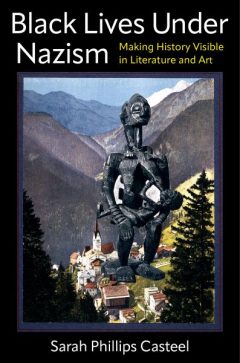
Black Lives Under Nazism: Making History Visible in Literature and Art
Columbia UP, 2024
In a little-known chapter of World War II, Black people living in Nazi Germany and occupied Europe were subjected to ostracization, forced sterilization, and incarceration in internment and concentration camps. In the absence of public commemoration, African diaspora writers and artists have preserved the stories of these forgotten victims of the Third Reich. Their works illuminate the relationship between creative expression and wartime survival and the role of art in the formation of collective memory.
This groundbreaking book explores a range of largely overlooked literary and artistic works that challenge the invisibility of Black wartime history. Emphasizing Black agency, Sarah Phillips Casteel examines both testimonial art by victims of the Nazi regime and creative works that imaginatively reconstruct the wartime period. Among these are the internment art of Caribbean painter Josef Nassy, the survivor memoir of Black German journalist Hans J. Massaquoi, the jazz fiction of African American novelist John A. Williams and Black Canadian novelist Esi Edugyan, and the photomontages of Scottish Ghanaian visual artist Maud Sulter. Bridging Black and Jewish studies, this book identifies the significance of African diaspora experiences and artistic expression for Holocaust history, memory, and representation.
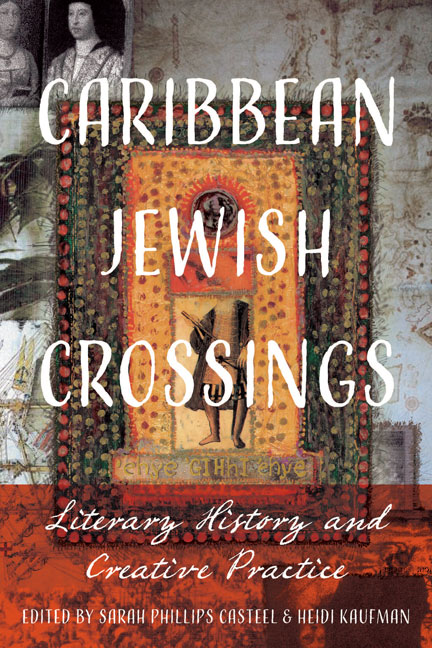
Caribbean Jewish Crossings
University of Virginia Press, 2019
Sarah Phillips Casteel and Heidi Kaufman (eds.)
Caribbean Jewish Crossings is the first essay collection to consider the Caribbean’s relationship to Jewishness through a literary lens. Although Caribbean novelists and poets regularly incorporate Jewish motifs in their work, scholars have neglected this strain in studies of Caribbean literature.
The book takes a pan-Caribbean approach, with chapters addressing the Anglophone, Francophone, Hispanophone, and Dutch-speaking Caribbean. Part I traces the emergence of a Caribbean-Jewish literary culture in Suriname, St. Thomas, Jamaica, and Cuba from the late eighteenth century through the early twentieth century. Part II brings into focus Sephardic and crypto-Jewish motifs in contemporary Caribbean literature, while Part III turns to the question of colonialism and its relationship to Holocaust memory. The volume concludes with the compelling voices of contemporary Caribbean creative writers.
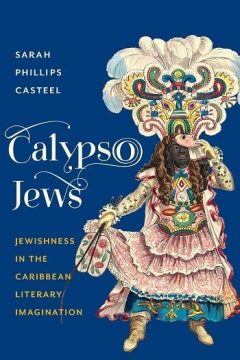
Calypso Jews: Jewishness in the Caribbean Literary Imagination
Columbia University Press, 2016
In original and insightful ways, Caribbean writers have turned to Jewish experiences of exodus and reinvention, from the Sephardim expelled from Iberia in the 1490s to the “Calypso Jews” who fled Europe for Trinidad in the 1930s. Examining these historical migrations through the lens of postwar Caribbean fiction and poetry, Sarah Phillips Casteel presents the first major study of representations of Jewishness in Caribbean literature. Bridging the gap between postcolonial and Jewish studies, Calypso Jews enriches cross-cultural investigations of Caribbean creolization.
Caribbean writers invoke both the 1492 expulsion and the Holocaust as part of their literary archaeology of slavery and its legacies. Despite the unequal and sometimes fraught relations between Blacks and Jews in the Caribbean before and after emancipation, Black-Jewish literary encounters reflect sympathy and identification more than antagonism and competition. Providing an alternative to U.S.-based critical narratives of Black-Jewish relations, Casteel reads Derek Walcott, Maryse Condé, Michelle Cliff, Jamaica Kincaid, Caryl Phillips, David Dabydeen, and Paul Gilroy, among others, to reveal a distinctive interdiasporic literature.
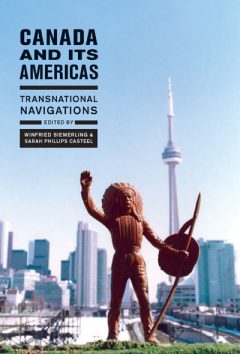
Canada and Its Americas: Transnational Navigations
McGill-Queen’s UP, 2010
Sarah Phillips Casteel and Winfried Siemerling
In the last few decades Canadian and Québécois literatures have been catapulted onto the global stage, gaining international readership and recognition. Canada and Its Americas challenges the convention that study of this literature should be limited to its place within national borders, arguing that these works should be examined from the perspective of their place and influence within the Americas as a whole. The chapters in this volume, a groundbreaking work in the burgeoning field of hemispheric American studies, expand the horizons of Canadian and Québécois literatures, suggest alternative approaches to models centred on the United States, and analyze the risks and benefits of hemispheric approaches to Canada and Quebec. Revealing the connections among a broad range of Canadian, Québécois, American, Caribbean, Latin American, and diasporic literatures, the contributors critique the neglect of Canadian works in Hemispheric studies and show how such writing can be successfully integrated into an emerging area of literary inquiry. An important development in understanding the diversity of literatures throughout the western hemisphere, Canada and Its Americas reveals exciting new ways for thinking about transnationalism, regionalism, border cultures, and the literatures they produce.
Second Arrivals: Landscape and Belonging in Contemporary Writing of the Americas
University of Virginia Press, 2007
Diaspora studies have tended to privilege urban landscapes over rural ones, wanting to avoid the racial homogeneity, conservatism, and xenophobia usually associated with the latter. In Second Arrivals: Landscape and Belonging in Contemporary Writing of the Americas, Sarah Phillips Casteel examines the work of writers such as Derek Walcott, V. S. Naipaul, Jamaica Kincaid, Philip Roth, and Joy Kogawa, among others, to show how it expresses the appeal that rural and wilderness spaces can hold for the diasporic imagination.
Casteel proposes an alternative to postmodern celebrations of rootlessness, bringing together writers from the Caribbean and North America who uniquely reimagine the New World landscape from the vantage point of cultural and geographical dislocation. As represented in a range of genres and media—fiction, poetry, garden writing, and installation art—these alternative forms of belonging reinterpret New World nature as infused with history and as subject to competing claims, generating a new poetics of American place. The author’s transnational approach also gives significant attention to Canadian material, which has largely been overlooked in hemispheric studies of the literature of the Americas.
Contributing to the growing movement of comparative American studies, Second Arrivals will appeal to scholars and students of inter-American studies, Caribbean studies, Canadian studies, diaspora studies, postcolonial studies, and ecocriticism.
- Travis DeCook
-
To learn more about Travis DeCook‘s research and publications, please click here.
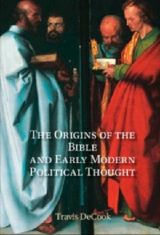
The Origins of the Bible and Early Modern Political Thought
Cambridge University Press, 2021
In this book, Travis DeCook explores the theological and political innovations found in early modern accounts of the Bible’s origins. In the charged climate produced by the Reformation and humanist historicism, writers grappled with the tension between the Bible’s divine and human aspects, and they produced innovative narratives regarding the agencies and processes through which the Bible came into existence and was transmitted. DeCook investigates how these accounts of Scripture’s production were taken up beyond the expected boundaries of biblical study, and were redeployed as the theological basis for wide-reaching arguments about the proper ordering of human life.
DeCook provides a new, critical perspective on ideas regarding secularity, secularization, and modernity, challenging the dominant narratives regarding the Bible’s role in these processes. He shows how these engagements with the Bible’s origins prompt a rethinking of formulations of secularity and secularization in our own time.
Shakespeare, the Bible, and the Form of the Book: Contested Scriptures
Routledge, 2011
Travis DeCook and Alan Galey (eds.)
Why do Shakespeare and the English Bible seem to have an inherent relationship with each other? How have these two monumental traditions in the history of the book functioned as mutually reinforcing sources of cultural authority? How do material books and related reading practices serve as specific sites of intersection between these two textual traditions? This collection makes a significant intervention in our understanding of Shakespeare, the Bible, and the role of textual materiality in the construction of cultural authority. Departing from conventional source study, it questions the often naturalized links between the Shakespearean and biblical corpora, examining instead the historically contingent ways these links have been forged. The volume brings together leading scholars in Shakespeare, book history, and the Bible as literature, whose essays converge on the question of Scripture as source versus Scripture as process—whether that scripture is biblical or Shakespearean—and in turn explore themes such as cultural authority, pedagogy, secularism, textual scholarship, and the materiality of texts. Covering an historical span from Shakespeare’s post-Reformation era to present-day Northern Ireland, the volume uncovers how Shakespeare and the Bible’s intertwined histories illuminate the enduring tensions between materiality and transcendence in the history of the book.
- Dana Dragunoiu
-
To learn more about Dana Dragunoiu‘s research and publications, please click here.
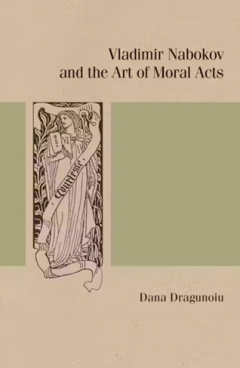
Vladimir Nabokov and the Art of Moral Acts
Northwestern UP, 2021
This book shows how ethics and aesthetics interact in the works of one of the most celebrated literary stylists of the twentieth century: the Russian American novelist Vladimir Nabokov. Dragunoiu reads Nabokov’s fictional worlds as battlegrounds between an autonomous will and heteronomous passions, demonstrating Nabokov’s insistence that genuinely moral acts occur when the will triumphs over the passions by answering the call of duty. Dragunoiu puts Nabokov’s novels into dialogue with the work of writers such as Alexander Pushkin, William Shakespeare, Leo Tolstoy, and Marcel Proust; with Kantian moral philosophy; with the institution of the modern duel of honor; and with the European traditions of chivalric literature that Nabokov studied as an undergraduate at Cambridge University. This configuration of literary influences and philosophical contexts allows Dragunoiu to advance an original and provocative argument about the formation, career, and legacies of an author who viewed moral activity as an art, and for whom artistic and moral acts served as testaments to the freedom of the will.
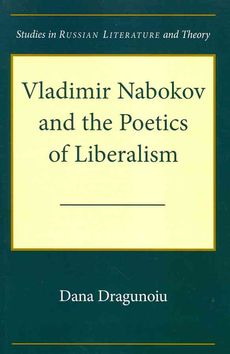
Vladimir Nabokov and the Poetics of Liberalism
Northwestern University Press, 2011
Alongside the puzzles contained in Nabokov’s fiction, scholars have been unable to untangle the seemingly contradictory relationship between, on one hand, the fiction and the beliefs and principles suggested by Nabokov’s biography and, on the other hand, the statements he made outside of his work. Through a close examination of Nabokov’s father’s political, moral, and aesthetic values and, more generally, Russian liberalism as it existed in the first few decades of the twentieth century, Dragunoiu provides persuasive answers to many long-standing questions in this deeply researched, innovative study. Showing the particular influence of the thought of Kant and Berkeley, she focuses on what she calls Nabokov’s “most deceptively apolitical novels”: The Gift, Lolita, Pale Fire, and Ada. In bringing to them a more extensive context than previous Nabokov scholars, Dragunoiu argues that their treatment of various moral and political subjects can be more clearly understood in the light of ideas inherited by Nabokov from his father and his father’s generation.
- Brian Greenspan
-
To learn more about Brian Greenspan’s research and publications, please click here.
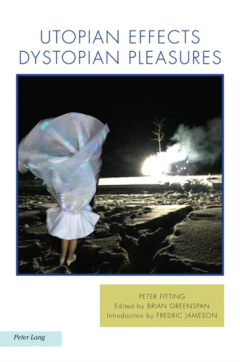
Utopian Effects, Dystopian Pleasures
Peter Lang, 2021
Peter Fitting
Brian Greenspan (ed.)
This collection brings together for the first time Peter Fitting’s writings about the utopian impulse as expressed in science fiction, fantasy, cinema, architecture, and cultural theory. These wide-ranging essays trace the constant reconsideration of the utopian project itself over the past four decades, from its mid-twentieth century period of decline to its revival in counter-cultural science fiction of the 1960s and ‘70s, its second decline with the «dystopian turn» in film, and the rise of feminist pessimism in the 1980s.
- Jennifer Henderson
-
To learn more about Jennifer Henderson‘s research and publications, please click here.

The Eye of the Master: Figures of the Québécois Colonial Imaginary
McGill-Queen’s UP, 2023
Dalie Giroux
Jennifer Henderson (trans.)
In the Québécois political vision of the twentieth century, sovereignty became synonymous with mastery. French Canadians sometimes claimed solidarity with racialized and Indigenous peoples, yet they saw their liberation as a matter of taking their rightful place in the seat of the oppressors. The idea of mastery has prevented the Québécois from seeing that their liberation is bound up with that of other groups oppressed by colonial powers.
The Eye of the Master confronts the missed opportunities for a decolonial version of indépendance in Quebec by examining the quest for mastery that has been at the root of every version of independence offered to the people of Quebec since the mid-twentieth century. Exploring political discourse, popular culture, and the family photo album, Dalie Giroux revisits the mythology of being “masters in our own house” and identifies the obstacles blocking a more comprehensive version of liberation based on solidarity. Drawing from the living forces of Indigenous thought and anti-racist, ecological, and feminist movements, Giroux envisions life without conquest, domination, exploitation, and surveillance. Making the case for a different future, beginning in the here and now, The Eye of the Master offers a major new intervention in contemporary political thought to Canadian readers and all those who imagine a different North America.
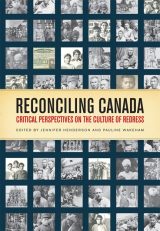
Reconciling Canada: Critical Perspectives on the Culture of Redress
University of Toronto Press, 2013
Jennifer Henderson and Pauline Wakeham (eds.)
Truth and reconciliation commissions and official governmental apologies continue to surface worldwide as mechanisms for coming to terms with human rights violations and social atrocities. As the first scholarly collection to explore the intersections and differences between a range of redress cases that have emerged in Canada in recent decades, Reconciling Canada provides readers with the contexts for understanding the phenomenon of reconciliation as it has played out in this multicultural settler state.
In this volume, leading scholars in the humanities and social sciences relate contemporary political and social efforts to redress wrongs to the fraught history of government relations with Aboriginal and diasporic populations. The contributors offer ground-breaking perspectives on Canada’s ‘culture of redress,’ broaching questions of law and constitutional change, political coalitions, commemoration, testimony, and literatures of injury and its aftermath. Also assembled together for the first time is a collection of primary documents – including government reports, parliamentary debates, and redress movement statements – prefaced with contextual information. Reconciling Canada provides a vital and immensely relevant illumination of the dynamics of reconciliation, apology, and redress in contemporary Canada.
Trans/acting Culture, Writing, and Memory: Essays in Honour of Barbara Godard
WLU Press, 2013
Eva C. Karpinski, Jennifer Henderson, Ian Sowton, and Ray Ellenwood (eds.)
Trans/acting Culture, Writing, and Memory is a collection of essays written in honour of Barbara Godard, one of the most original and wide-ranging literary critics, theorists, teachers, translators, and public intellectuals Canada has ever produced. The contributors, both established and emerging scholars, extend Godard’s work through engagements with her published texts in the spirit of creative interchange and intergenerational relay of ideas. Their essays resonate with Godard’s innovative scholarship, situated at the intersection of such fields as literary studies, cultural studies, translation studies, feminist theory, arts criticism, social activism, institutional analysis, and public memory. In pursuit of unexpected linkages and connections, the essays venture beyond generic and disciplinary borders, zeroing in on Godard’s transdisciplinary practice which has been extremely influential in the way it framed questions and modelled interventions for the study of Canadian, Québécois, and Acadian literatures and cultures. The authors work with the materials ranging from Canadian government policies and documents to publications concerning white-supremacist organizations in Southern Ontario, online materials from a Toronto-based transgender arts festival, a photographic mural installation commemorating the Montreal Massacre, and the works of such writers and artists as Marie Clements, Nicole Brossard, France Daigle, Nancy Huston, Yvette Nolan, Gail Scott, Denise Desautels, Louise Warren, Rebecca Belmore, Vera Frenkel, Robert Lepage, and Janet Cardiff.
Settler Feminism and Race Making in Canada
University of Toronto Press, 2003
Settler Feminism and Race Making in Canada engages in a discursive analysis of three ‘texts’: the narratives of Anna Jameson (Winter Studies and Summer Rambles in Canada), Theresa Gowanlock and Theresa Delaney (Two Months in the Camp of Big Bear), and the ‘Janey Canuck’ books of Emily Murphy in order to examine how, in the context of a settler colony, white women have been part of the project of its governance, its racial constitution, and its role in British imperialism. Using Foucauldian theories of governmentality to connect these first-person narratives to wider strategies of race making, Jennifer Henderson develops a feminist critique of the ostensible freedom that Anglo-Protestant women found within nineteenth-century liberal projects of rule.
Henderson’s interdisciplinary approach including critical studies in law, literature, and political history offers a new perspective on these women that detaches them from the dominant colony-to-nation narrative and shows their importance in a tradition of moral regulation. This project not only redresses problems in Canadian literary history, it also responds to the limits of postcolonial, nationalist, and feminist projects that search for authentic voices and resistant agency without sufficient attention to the layers of historical sedimentation through which these voices speak.
- Paul Keen
-
To learn more about Paul Keen‘s research and publications, please click here.
- Barbara Leckie
-
To learn more about Barbara Leckie‘s research and publications, please click here.
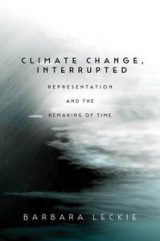
Climate Change, Interrupted
Representation and the Remaking of TimeStanford University Press, 2022
In this moment of climate precarity, Victorian studies scholar Barbara Leckie considers the climate crisis as a problem of time. Spanning the long nineteenth century through our current moment, her interdisciplinary treatment of climate change at once rethinks time and illustrates that the time for climate action is now.
Climate Change, Interrupted argues that linear, progress-inflected temporalities are not adequate to a crisis that defies their terms. Instead, this book advances a theory and practice of interruption to rethink prevailing temporal frameworks. At the same time, it models the anachronistic, time-blending, and time-layering temporality it advances. In a series of experimental chapters informed by the unlikely trio of Walter Benjamin, Donna Haraway, and Virginia Woolf, Leckie reinflects and cowrites the traditions and knowledges of the long nineteenth century and the current period in the spirit of climate action collaboration.
The current moment demands as many approaches as possible, invites us to take risks, and asks scholars and activists adept at storytelling to participate in the conversation. Climate Change, Interrupted, accordingly, invests in interruption to tell a different story of the climate crisis.
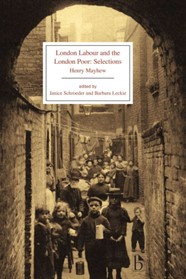
London Labour and the London Poor
Broadview Press, 2019
Henry Mayhew
Barbara Leckie and Janice Schroeder (eds.)
Produced between 1850 and 1862, London Labour and the London Poor is one of the most significant examples of nineteenth-century oral history. The collection teems with the minute particulars of the everyday—bits and pieces of London lives assembled into a precarious whole by the author, editor, and principal investigator, Henry Mayhew. Mayhew was interested in the social fabric of people’s lives, their labour and earnings, but also their families, education, leisure time, and religious beliefs. What gives his “case studies” such immediacy is that they seem to flow unprompted and uninterrupted from the mouths of his subjects: street sellers, dock labourers, musicians, rat catchers, vagrants, chimney sweeps, thieves, and prostitutes. All are captured in this newly annotated and selected edition of Mayhew’s four-volume work. Historical appendices include a contemporary map of London, reviews of London Labour, and other slum journalism from the period.
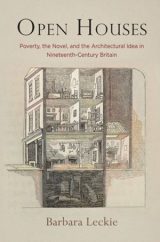
Open Houses: Poverty, the Novel, and the Architectural Idea in Nineteenth-Century Britain.
University of Pennsylvania Press, 2018
Open Houses addresses nineteenth-century documentary and print culture dedicated to convincing the reader of the wretchedness of housing of the poor and its urgent need for reform. It illustrates the ways in which “looking into” these houses animated new models for social critique in tandem with new forms for the novel.
Sanitary Reform in Victorian Britain, Vol. II
Pickering & Chatto Publishers, 2013
Tom Crook and Barbara Leckie (eds.)
Sanitary reform was one of the great debates of the nineteenth century. Unprecedented urban growth significantly increased the spread of disease. This presented new challenges to public health not least because the relationship between sanitary conditions and disease was not universally acknowledged. Opinions from those involved in medicine, engineering, civic development, architecture and politics are all represented, providing a wide overview of Victorian society. This six volume edition, published in two parts, makes available for the first time a modern, edited collection of rare nineteenth-century documents specifically addressing sanitary reform.
The collection includes material on Glasgow, Edinburgh, Manchester, Dublin and London, giving a nationwide perspective on the conditions of British urban life. It covers burial, sewerage, water supply, public baths, housing and inspection. The material comes from newspapers and journals, reports of Medical Health Officers and government agencies, architectural guides and promotional literature from sanitary communities. This unique resource is an invaluable tool for researchers of the History of Science and Medicine and Victorian Studies.
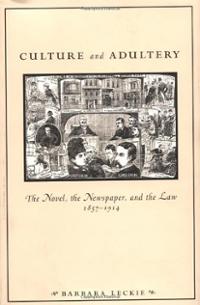
Culture and Adultery: The Novel, the Newspaper, and the Law, 1857-1914
University of Pennsylvania Press, 1999
Adultery, it is often assumed, was not a major concern of English culture during the Victorian age, and the apparent absence of adultery–indeed, of all explicit representations of sexuality–in turn made censorship for obscene libel unnecessary. Very few writers, conventional wisdom has it, were bold enough to defy the powerful implicit constraints imposed upon literary production.
If we find no English Anna Karenina or Madame Bovary, Barbara Leckie nevertheless demonstrates that adultery preoccupied English culture during this period. After the Matrimonial Causes Act of 1857 was passed, adultery was prominently discussed in the Divorce Court. Transcriptions of divorce trials were an immensely popular front-page feature of almost all daily newspapers for more than fifty years. At the same time as narratives of adultery stood at the center of sensation novels such as Mary Elizabeth Bradden’s The Doctor’s Wife, literary reviews and cultural debates strongly encouraged serious novelists to avoid the topic.
In Culture and Adultery, Leckie mines novels, newspapers, court and Parliamentary records to explore several related sets of issues. How, first, did adultery become “visible” in the public sphere in the second half of the nineteenth century? Why, conversely, has the discursive history of adultery been deemphasized in the English critical tradition? And how is the history of the Victorian and early twentieth-century English novel revised when the culture’s concern with adultery and censorship are reintroduced?
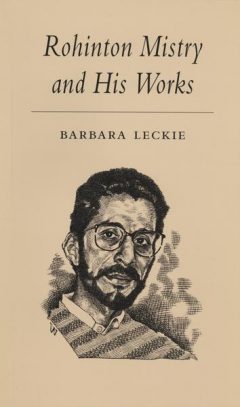
Rohinton Mistry and His Works
ECW Press, 1996
- Jody Mason
-
To learn more about Jody Mason‘s research and publications, please click here.
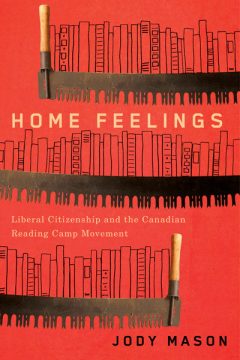
Home Feelings: Liberal Citizenship and the Canadian Reading Camp Movement
McGill-Queen’s University Press, 2019
Literature, literacy, and citizenship took on new and contested meanings in early twentieth-century Canada, particularly in frontier work camps. In this critical history of the reading camp movement, Jody Mason undertakes the first sustained analysis of the organization that became Frontier College in 1919.
Employing an interdisciplinary approach, Home Feelings investigates how the reading camp movement used fiction, poetry, songs, newspapers, magazines, school readers, and English-as-a-second-language and citizenship manuals to encourage ideas of selfhood that were individual and intimate rather than collective. Mason shows that British-Canadian settlers’ desire to define themselves in relation to an expanding non-British immigrant population, as well as a need for immigrant labour, put new pressure on the concept of citizenship in the first decades of the twentieth century. Through the Frontier College, one of the nation’s earliest citizenship education programs emerged, drawing on literature’s potential to nourish “home feelings” as a means of engaging socialist and communist print cultures and the non-British immigrant communities with which these were associated.
Shifting the focus away from urban centres and postwar state narratives of citizenship, Home Feelings tracks the importance of reading projects and conceptions of literacy to the emergence of liberal citizenship in Canada prior to the Second World War.
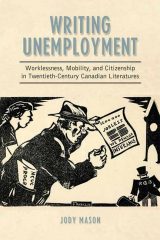
Writing Unemployment: Worklessness, Mobility, and Citizenship in Twentieth-Century Canadian Literatures
University of Toronto Press, 2013
This landmark study explores the cultural and literary history of unemployment in Canada from the 1920s to the 1970s, which were crucial decades in the formation of our current conception of Canada as a nation. Writing Unemployment asks how writers with diverse political affiliations participated in and protested against the discursive framing of unemployment. It argues that Depression-era conceptions of unemployment shaped later twentieth-century understandings of both worklessness and citizenship.
By examining novels, short stories, poetry, manifestos, and agitprop, Jody Mason situates the literary history of the cultural left in a broader context, challenges the dominant literary-historical narrative of the pioneer settler, and contributes to new scholarship on Canada’s modern period. By bridging close textual readings with book and publishing history, economic and sociological analysis, and original archival research, Writing Unemployment offers new ideas on work by many of Canada’s most important writers.
- Jodie Medd
-
To learn more about Jodie Medd‘s research and publications, please click here.
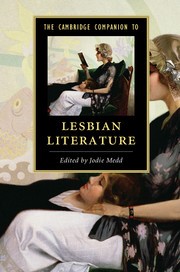
The Cambridge Companion to Lesbian Literature
Cambridge University Press, 2015
Jodie Medd (ed.)
Edited by Jodie Medd, The Cambridge Companion to Lesbian Literature examines literary representations of lesbian sexuality, identities, and communities, from the medieval period to the present. In addition to providing a helpful orientation to key literary-historical periods, critical concepts, theoretical debates and literary genres, this Companion considers the work of such well-known authors as Virginia Woolf, Adrienne Rich, Audre Lorde, Alison Bechdel and Sarah Waters. Written by a host of leading critics and covering subjects as diverse as lesbian desire in the long eighteenth century and same-sex love in a postcolonial context, this Companion delivers insight into the variety of traditions that have shaped the present landscape of lesbian literature.
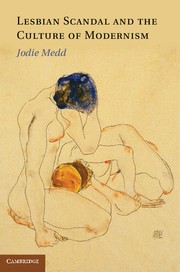
Lesbian Scandal and the Culture of Modernism
Cambridge University Press, 2012
Before lesbianism became a specific identity category in the West, its mere suggestion functioned as a powerful source of scandal in early twentieth-century British and Anglo-American culture. Reconsidering notions of the ‘invisible’ or ‘apparitional’ lesbian, Jodie Medd argues that lesbianism’s representational instability, and the scandals it generated, rendered it an influential force within modern politics, law, art and the literature of modernist writers like James Joyce, Ezra Pound and Virginia Woolf. Medd’s analysis draws on legal proceedings and parliamentary debates as well as crises within modern literary production – patronage relations, literary obscenity and cultural authority – to reveal how lesbian suggestion forced modern political, cultural and literary institutions to negotiate their own identities, ideals and limits. Medd’s text will be of great interest to scholars and graduate students in gender and women’s studies, modernist literary studies and English literature.
- Stuart Murray
-
To learn more about Stuart Murray‘s research and publications, please click here.
- Franny Nudelman
-
To learn more about Franny Nudelman‘s research and publications, please click here.
- Janice Schroeder
-
To learn more about Janice Schroeder’s research and publications, please click here.

London Labour and the London Poor
Broadview Press, 2019.
Henry Mayhew
Barbara Leckie and Janice Schroeder (eds.)
Produced between 1850 and 1862, London Labour and the London Poor is one of the most significant examples of nineteenth-century oral history. The collection teems with the minute particulars of the everyday—bits and pieces of London lives assembled into a precarious whole by the author, editor, and principal investigator, Henry Mayhew. Mayhew was interested in the social fabric of people’s lives, their labour and earnings, but also their families, education, leisure time, and religious beliefs. What gives his “case studies” such immediacy is that they seem to flow unprompted and uninterrupted from the mouths of his subjects: street sellers, dock labourers, musicians, rat catchers, vagrants, chimney sweeps, thieves, and prostitutes. All are captured in this newly annotated and selected edition of Mayhew’s four-volume work. Historical appendices include a contemporary map of London, reviews of London Labour, and other slum journalism from the period.
Nineteenth Century British Women’s Education, 1840-1900
Routledge, 2007
Susan Hamilton and Janice Schroeder (eds.)
This six-volume collection from Routledge and Edition Synapse brings together key documents from the Victorian feminist campaign to establish and improve girls’ and women’s education. The set is divided into two sections, both of which incorporate materials that argue for the improvement of girls’ and women’s education as well as arguments made against education for girls and women. The first section focuses on the debate surrounding the quality of women’s education and the question of access to higher education for women. This section also brings together documents from the feminist campaign with writing from the established press on the question of women’s higher education, and writings from the Social Sciences Association where many education reformers aired their views. The second section concentrates on the strengths and successes of Victorian women as educators, and highlights some of the most influential women in the field of education during this era.
Drawing widely on articles from the feminist and established press, government papers, newspapers, professional and association journals, as well as memoirs, addresses, pamphlets, and reviews, this essential collection gives researchers excellent and comprehensive access to nineteenth-century debates on improving girls’ and women’s education, and women’s work as educators.
- Andrew Wallace
-
To learn more about Andrew Wallace‘s research and publications, please click here.
- Percy Walton
-
To learn more about Percy Walton‘s research and publications, please click here.
- Micheline White
-
To learn more about Micheline White‘s research and publications, please click here.
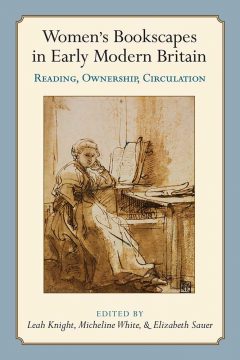
Early Modern Women’s Bookscapes: Reading, Ownership, Circulation
University of Michigan Press, 2018
Micheline White, Leah Knight and Elizabeth Sauer
Women in 16th- and 17th-century Britain read, annotated, circulated, inventoried, cherished, criticized, prescribed, and proscribed books in various historically distinctive ways. Yet, unlike that of their male counterparts, the study of women’s reading practices and book ownership has been an elusive and largely overlooked field.
In thirteen probing essays, Women’s Bookscapes in Early Modern Britain brings together the work of internationally renowned scholars investigating key questions about early modern British women’s figurative, material, and cultural relationships with books. What constitutes evidence of women’s readerly engagement? How did women use books to achieve personal, political, religious, literary, economic, social, familial, or communal goals? How does new evidence of women’s libraries and book usage challenge received ideas about gender in relation to knowledge, education, confessional affiliations, family ties, and sociability? How do digital tools offer new possibilities for the recovery of information on early modern women readers?
The volume’s three-part structure highlights case studies of individual readers and their libraries; analyses of readers and readership in the context of their interpretive communities; and new types of scholarly evidence—lists of confiscated books and convent rules, for example—as well as new methodologies and technologies for ongoing research. These essays dismantle binaries of private and public; reading and writing; female and male literary engagement and production; and ownership and authorship.
Interdisciplinary, timely, cohesive, and concise, this collection’s fresh, revisionary approaches represent substantial contributions to scholarship in early modern material culture; book history and print culture; women’s literary and cultural history; library studies; and reading and collecting practices more generally.
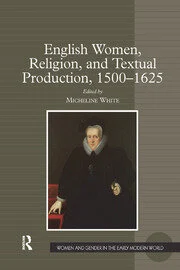
English Women, Religion, and Textual Production, 1500-1625
Routledge, 2011
Micheline White (ed.)
Contributing to the growing interest in early modern women and religion, this essay collection advances scholarship by introducing readers to recently recovered or little-studied texts and by offering new paradigms for the analysis of women’s religious literary activities. Contributors underscore the fact that women had complex, multi-dimensional relationships to the religio-political order, acting as activists for specific causes but also departing from confessional norms in creative ways and engaging in intra-as well as extra-confessional conflict. The volume thus includes essays that reflect on the complex dynamics of religious culture itself and that illuminate the importance of women’s engagement with Catholicism throughout the period. The collection also highlights the vitality of neglected intertextual genres such as prayers, meditations, and translations, and it focuses attention on diverse forms of textual production such as literary writing, patronage, epistolary exchanges, public reading, and epitaphs. Collectively, English Women, Religion, and Textual Production, 1500-1625 offers a comprehensive treatment of the historical, literary, and methodological issues preoccupying scholars of women and religious writing.
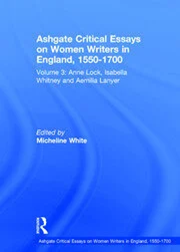
Ashgate Critical Essays on Women Writers in English, 1550-1700
Routledge, 2009
Micheline White (ed.)
Anne Lock, Isabella Whitney and Aemilia Lanyer have emerged as important literary figures in the past ten years and scholars have increasingly realized that their bold and often unorthodox works challenge previously-held conceptions about women’s engagement with early modern secular and religious literary culture. This volume collects some of the most influential and innovative essays that elucidate these women’s works from a wide range of feminist, literary, aesthetic, economic, racial, sexual and theological perspectives. The volume is prefaced by an extended editorial overview of scholarship in the field.
- Grant Williams
-
To learn more about Grant Williams’ research and publications, please click here.
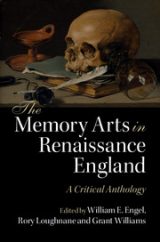
The Memory Arts in Renaissance England: A Critical Anthology
Cambridge University Press, 2016
William E. Engel, Rory Loughnane, and Grant Williams (eds.)
This is the first critical anthology of writings about memory in Renaissance England. Drawing together excerpts from more than seventy writers, poets, physicians, philosophers and preachers, and with over twenty illustrations, the anthology offers the reader a guided exploration of the arts of memory. The introduction outlines the context for the tradition of the memory arts from classical times to the Renaissance and is followed by extracts from writers on the art of memory in general, then by thematically arranged sections on rhetoric and poetry, education and science, history and philosophy, religion, and literature, featuring texts from canonical, non-canonical and little-known sources. Each excerpt is supported with notes about the author and about the text’s relationship to the memory arts, and includes suggestions for further reading. The book will appeal to students of the memory arts, Renaissance literature, the history of ideas, book history and art history.
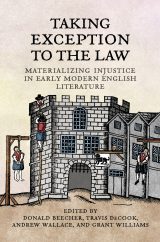
Taking Exception to the Law: Materializing Injustice in Early Modern English Literature
University of Toronto Press, 2015
Donald Beecher, Travis DeCook, Andrew Wallace, and Grant Williams (eds.)
Taking Exception to the Law explores how a range of early modern English writings responded to injustices perpetrated by legal procedures, discourses, and institutions. From canonical poems and plays to crime pamphlets and educational treatises, the essays engage with the relevance and wide appeal of legal questions in order to understand how literature operated in the early modern period.
Justice in its many forms – legal, poetic, divine, natural, and customary – is examined through insightful and innovative analyses of a number of texts, including The Merchant of Venice, The Faerie Queene, and Paradise Lost. A major contribution to the growing field of law and literature, this collection offers cultural contexts, interpretive insights, and formal implications for the entire field of English Renaissance culture.
- Contract Instructors
-
Hugh Reid
Morgan Rooney
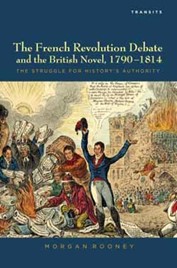
The French Revolution Debate and the British Novel, 1790-1814: The Struggle for History’s Authority
Bucknell UP, 2013
This study examines how debates about history during the French Revolution informed and changed the nature of the British novel between 1790 and 1814. During these years, intersections between history, political ideology, and fiction, as well as the various meanings of the term “history” itself, were multiple and far reaching. The French Revolution Debate and the British Novel, 1790 – 1814 demonstrates that the transformation of the novel at this fascinating juncture of British political and literary history contributes to the emergence of the historical novel as it was first realized in Scott’s Waverley (1814).
- Past Faculty
-
Pius Adesanmi
Donald Beecher
Arnd Bohm
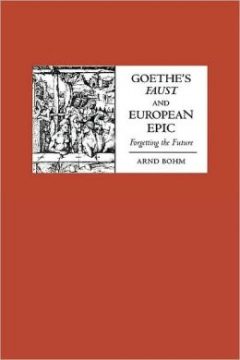
Goethe’s Faust and European Epic: Forgetting the Future
Camden House, February 2007
Goethe has long been enshrined as the greatest German poet, but his admirers have always been uneasy with the idea that he did not produce a great epic poem. A master in all the other genres and modes, it has been felt, should have done so. Arnd Bohm proposes that Goethe did compose an epic poem, which has been hidden in plain view: Faust. Goethe saw that the Faust legends provided the stuff for a national epic: a German hero, a villain (Mephistopheles), a quest (to know all things), a sublime conflict (good versus evil), a love story (via Helen of Troy), and elasticity (all human knowledge could be accommodated by the plot). Bohm reveals the care with which Goethe draws upon such sources as Tasso, Ariosto, Dante, and Vergil. In the microcosm of the “Auerbachs Keller” episode Faust has the opportunity to find “what holds the world together in its essence” and to end his quest happily, but he fails. He forgets the future because he cannot remember what epic teaches. His course ends tragically, bringing him back to the origin of epic, as he replicates the Trojans’ mistake of presuming to cheat the gods.
Mary Jane Edwards
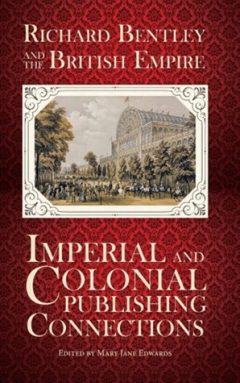
Richard Bentley and the British Empire: Imperial and Colonial Publishing Connections
Brighton, England: EER Edward Everett Root Publishers, and Melbourne, Australia: The Ancora P, Monash University, 2019
Mary Jane Edwards (ed.)
Richard Bentley (then Richard Bentley and Son) was the leading publisher of fiction in three-volume form for much of the 19th century, and his business traded globally. He was one of the most important publishers in his time. He worked with many of the best-selling British and overseas writers, including publishing much important later fiction in single-volumes. From 1832 until it was sold to Macmillan in 1898, his London-based firm developed networks to distribute its books throughout the British Empire. It also issued works of fiction and non-fiction about Great Britain’s various colonies in what are now Australia, Canada, India, New Zealand, and South Africa. The book historians and scholarly editors who have contributed to this collection analyze fundamental aspects of the structure, history and functioning of the international book trade. They explore the many roles that Bentley played in disseminating information about these far-flung possessions and in helping to develop – and modify – British cultural values in them.
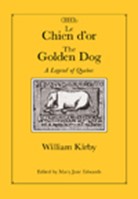
Centre for Editing Early Canadian Texts (CEECT)
Mary Jane Edwards (Gen. Ed.)
This scholarly editing project comprises twelve titles published by Carleton University Press and McGill-Queen’s University Press between 1985 and 2012: The History of Emily Montague; Canadian Crusoes, A Tale of the Rice Lake Plains; A Strange Manuscript found in a Copper Cylinder; Wacousta or, The Prophecy: A Tale of the Canadas; Roughing it in the Bush or Life in Canada; Antoinette de Mirecourt or Secret Marrying and Secret Sorrowing; The Mephibosheth Stepsure Letters; St. Ursula’s Convent or the Nun of Canada; Canadian Brothers or the Prophecy Fulfilled; The Clockmaker, Series One, Two and Three; The Backwoods of Canada; and Le Chien d’or / The Golden Dog. In addition to her role as General Editor of the series, Mary Jane Edwards edited the first and final titles, Frances Brooke’s The History of Emily Montague and William Kirby’s Le Chien d’or / The Golden Dog.
Robert Holton
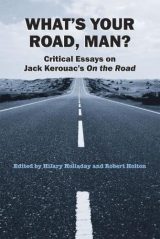
What’s Your Road, Man?
Southern Illinois University Press, 2008
Hilary Holladay and Robert Holton (eds.)
The ten essays in this groundbreaking volume cover a broad range of topics and employ a variety of approaches–including theoretical interpretations and textual and comparative analysis–to investigate such issues as race, class, gender, and sexuality, as well as the novel’s historical and literary contexts. What’s Your Road, Man? illustrates the richness of the critical work currently being undertaken on this vital American narrative. Featuring essays from renowned Kerouac experts as well as emerging scholars, What’s Your Road, Man? draws on an enormous amount of research into the literary, social, cultural, biographical, and historical contexts of Kerouac’s canonical novel. Since its publication in 1957, On the Road has remained in print and has continued to be one of the most widely read twentieth-century American novels.
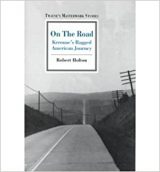
On the Road: Kerouac’s Ragged American Journey
Twayne Publishers (Masterwork Studies Series), 1999
Robert Holton’s new study, On The Road: Kerouac’s Ragged American Journey, is one of the few to consider the cultural and literary impact of this iconic novel. Most previous studies have concentrated on the autobiographical nature of the work and undervalued the context from which it sprang and its impact on American culture. Rock and Roll artists like Bob Dylan and John Lennon were early Kerouac fans, and the Beat movement paved the way for subsequent youth movements like the hippies of the 1960s and the grunge kids of the 1990s. However, it may be because of this association with youth and rebellion that the novel has never made it into the official literary canon. But unlike other critics who dismiss it, Holton is not looking for answers to today’s problems in this 1950s novel. Instead, in this close reading of the novel he seeks to explore the connections between this hugely influential work and the evolution of American culture in the postwar era and beyond.
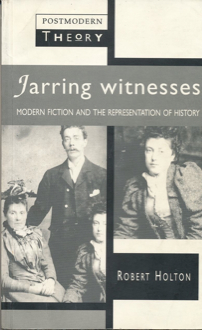
Jarring Witnesses: Modern Fiction and the Representation of History
Harvester Wheatsheaf, 1994
Jarring Witnesses begins by surveying the problem of point of view as a formal, cognitive and cultural determinant in narrative historiography, particularly in the way certain dominant forms of ‘legitimate’ history have necessitated the suppression of the voices of ‘jarring witnesses’. The problem is explored in relation to Pierre Bourdieu’s theories of doxa and heterodoxy, Bakhtin’s concept of heteroglossia, and postmodernism. With this theoretical framework established, a number of modern novels concerned with history are then explored. Chapters devoted to Conrad’s Nostromo, Ford’s Parade’s End, and Faulkner’s Absalom, Absalom! examine the ultimately orthodox historiographical points of view in these novels, while a chapter on the fiction of African-American women engages the problem of historiography from the margins of the dominant culture. In the final chapter, Pynchon’s V is the focus of a discussion of postmodernism and historical discourse. This is an original, interdisciplinary work which engages issues of contemporary academic debate and illustrates its arguments with examples from well-known texts. The book is relevant to current debates in the problems of narrative representation both in fiction and the writing of history, while addressing questions being raised in literary studies concerning the representation of cultural difference and the varieties of social and discursive power.
Sukeshi Kamra
